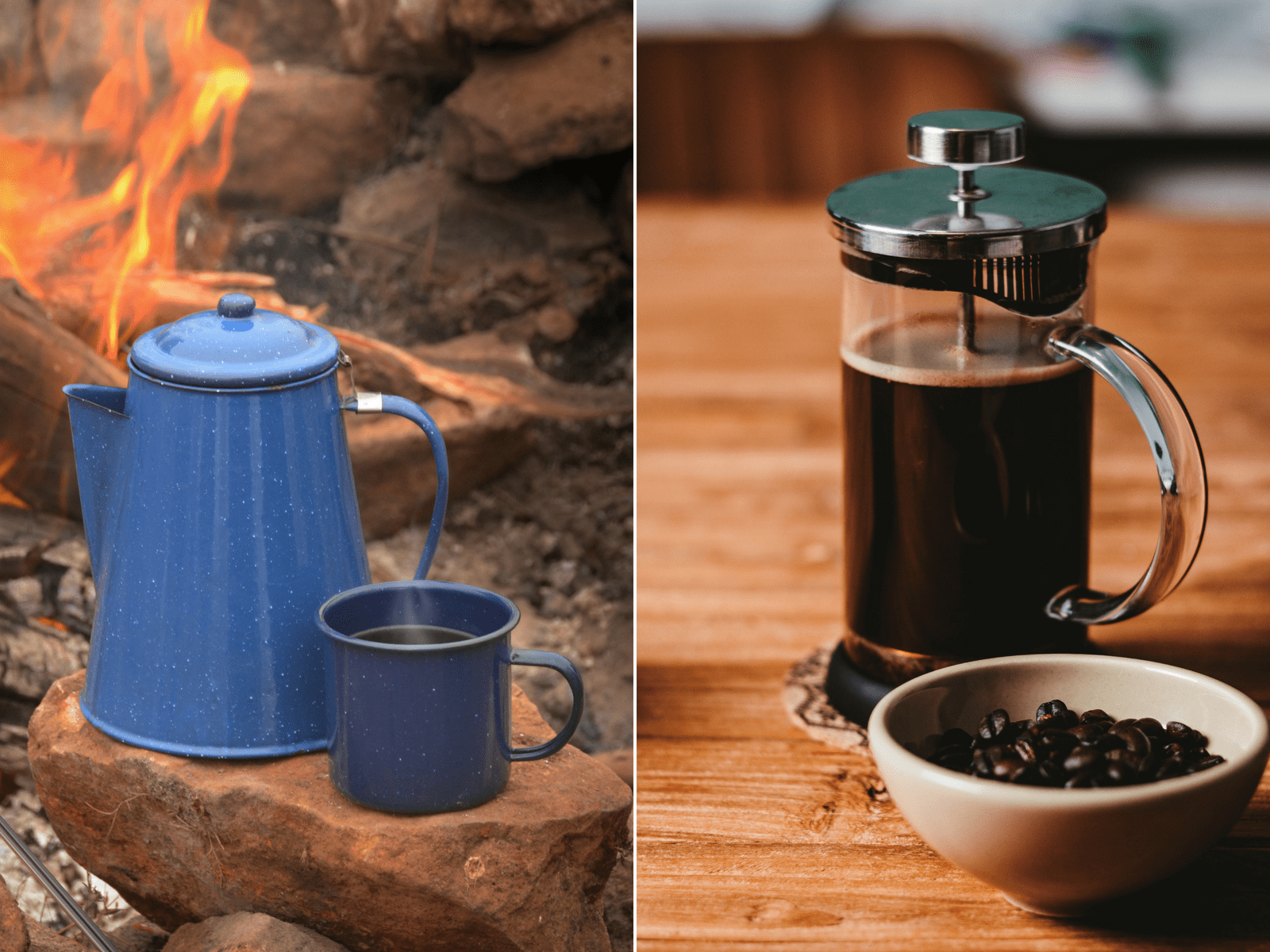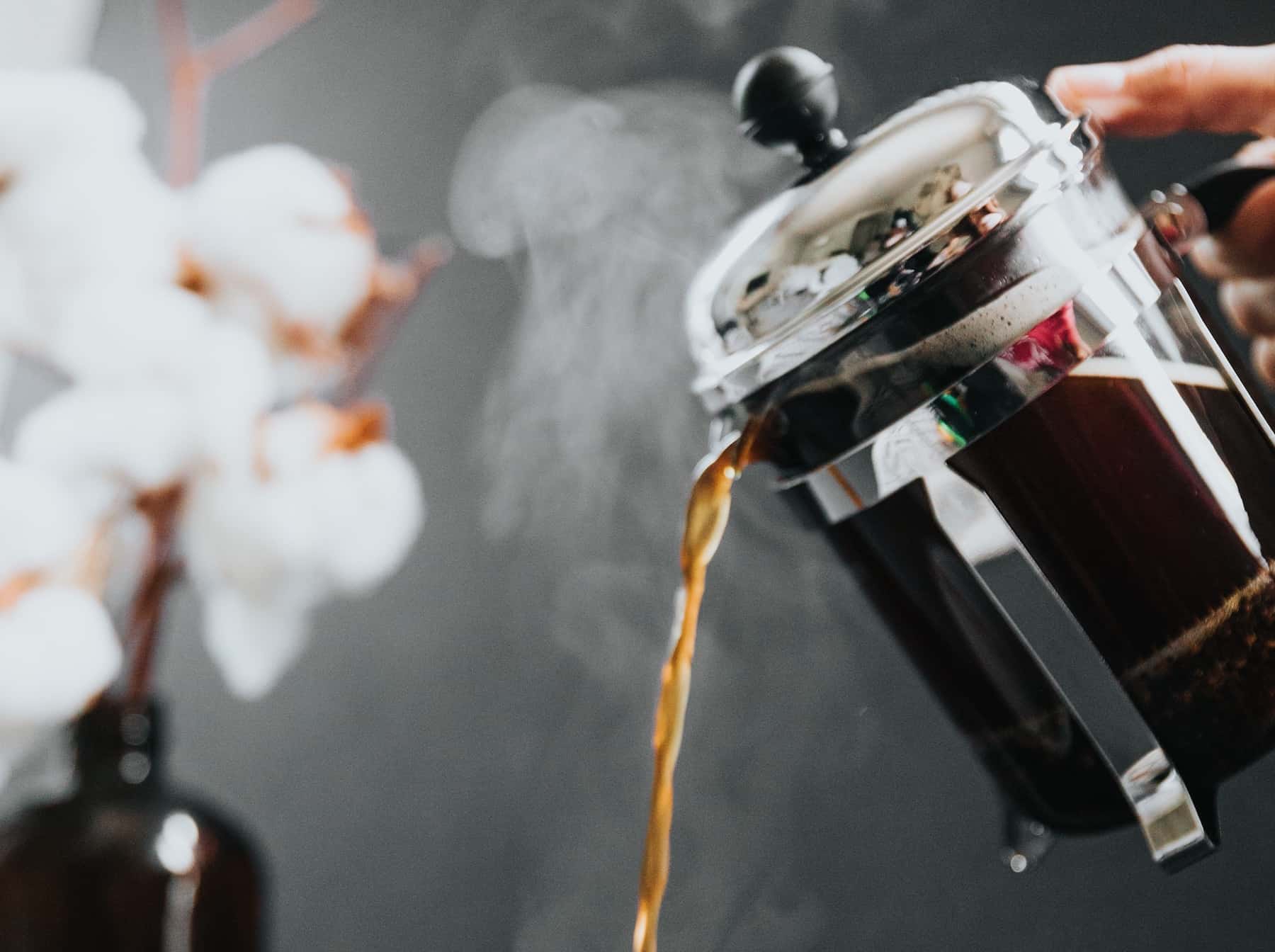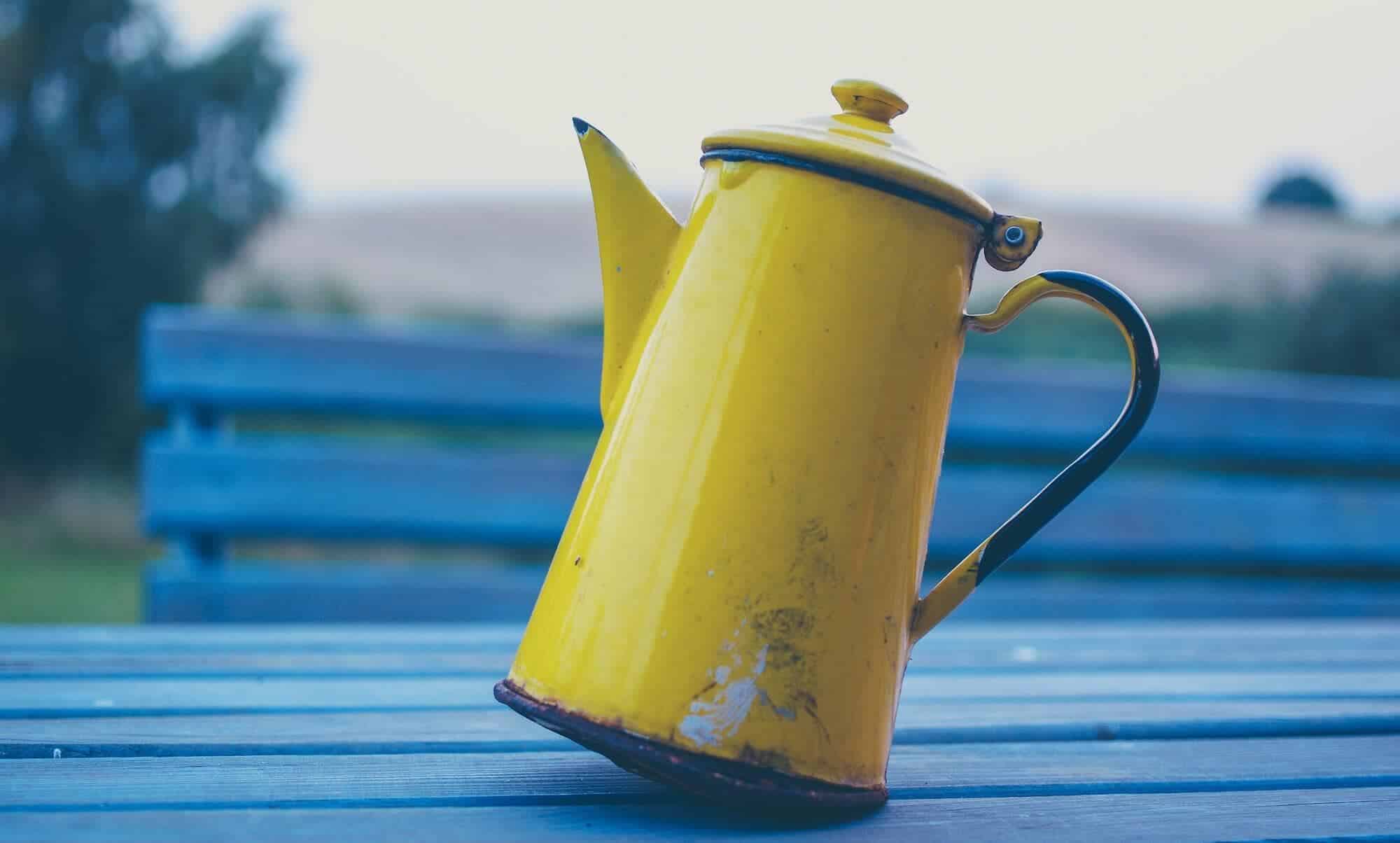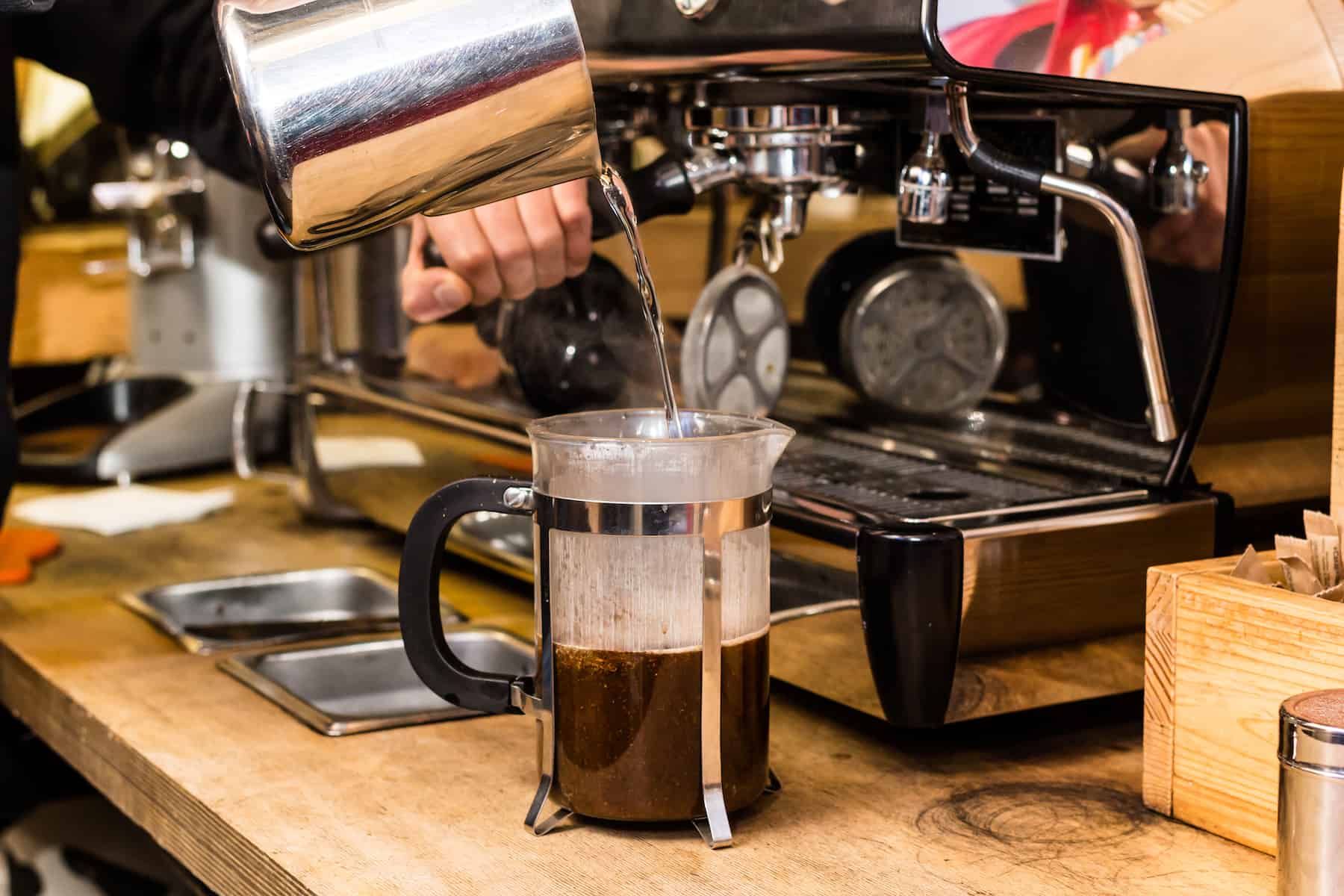The coffee equipment aisle at your local department store *only* grows more complicated, full of options.

As the coffee industry explodes, with new creative ways bursting onto the scene, a lot of folks who have been around for a while test out these new ways to brew, and still decide on utilizing the older methods.
Two of the most well-known "old" methods of brewing coffee are the percolator and the french press. These two items look like they might be some sort of tool for vast scientific investigation, or perhaps for some culinary adventuring beyond the mere home-chef.
But, those are - indeed - tools for making coffee, a coffee which tastes good enough to compete with any of the newer methods.
Percolator vs. French Press
Two of the most popular home coffee brewing methods are the french press and the percolator.
French press involves simply immersing the coffee in water, and using pressure to accelerate extraction. It offers a very full-bodied, strong brew. But, it is weak when it comes to making large amounts of coffee.
Percolator coffee is one of the older methods of making coffee and it performs extremely well in brewing large amounts of coffee. It uses steam and grounds to brew coffee. You place the grounds in the filter, which is shaped like a donut (typically), and you pour the water in. The percolator heats up and the steam rises, condenses, and falls through the grounds.
Differences in Taste

French press
The french press delivers a robust, full-bodied brew. You can expect that the classical flavors associated with coffee will come through full strength.
French press is not a method for displaying the delicate, floral aspects of a coffee. But, if you are seeking something that features strongly flavors that will go extremely well with a shot of cream, it is certainly the way to go.
Flavors like chocolate and nut will be front-and-center. Further, the french press will produce a brew that seems “thick”. This is due to the large amounts of oil and sediment that makes its way into the brew.
The body of coffee from a french press is what allows it to stand up well to being doused with additives like cream and sugar, or honey and butter.
For many, the presence of the sediment and oil is what makes the french press the best way to brew coffee.
Play around with the small amount of variables, most importantly, change the amount of time you allow the grounds to steep before pressing and pouring. This may accentuate different flavors.
Percolator
Unfortunately, percolator coffee was not devised with flavor profile in mind. It was devised in a time when simply making large amounts of coffee for maximum caffeine delivery was most important.
Thankfully, a number of stove-top percolators exist that create a nice, roasty brew. But, you will be missing much of the actual profile of the beans and simply getting a cup that tastes like strong coffee.
If you are chasing after flavor and want to brew using a percolator, ignore the electronic devises. These are simply made for producing a ton of coffee quickly. Of course, that can be a highly valuable thing. So, while there is a serious sacrifice to flavor, you can have a coffee party with 20 of your best friends in 5 minutes!
Differences in Brew Time

French press
French press takes about 5 minutes on average. You can play with this time plus or minus 30 seconds. But, 5 minutes is average provided you have ground your coffee and heated your water already.
If you are trying to batch brew using a french press, and I do not recommend doing so if time is a constraint, you should multiply the output of your french press times 5 minutes. It can get pretty time consuming if you need to brew more than one french press full of coffee.
Percolator
The percolator is an all-in-one system.
Drop the grounds in, add your water, and go.
Brew time varies between devices, but usually 2-10 minutes is average.
Not only that, but you can pull coffee from the spigot at any point during the brewing process depending on your preferred strength.
The percolator does not suffer when batch brewing. In fact, it is not unbelievable to see a perc that produces 100 cups of coffee. For this reason, it really shines when it comes to brewing large amounts of coffee in a short amount of time.
Differences in Ease of Use

French press
Not much is easier than pressing down.
There is not much to fiddle with. Add your grounds, heat your water, add your water, wait and press. Pretty easy.
Percolator
Percolators are generally quite easy to use. Simply fill the elevated filter, add desired/prescribed amount of water, and press the "on" switch or start the flame.
Percolator brewing is a painless, easy method to produce a large amount of coffee in short order.
Differences in Portability
French press
Provided you can heat water and have properly ground coffee and a safe way to transport your press, this is a great all-in-one method and very portable.
Percolator
Most percolators can take any grind of coffee, so long as it is on the coarser side.
But, they often require a stove, fire, or electrical outlet.
Finally, brewing a single cup or two cups in a percolator is probably major overkill and under use of the system. Choose something else for portability.
Differences in Ease of Clean Up
French press
For some, their press will be a little finicky to clean but it is nothing that about 5 minutes and some elbow grease can’t fix.
Percolator
Rinse out the urn and dump the grounds, that is the extent of clean up.
Wrap Up
There are a few things to remember when considering which of these methods to choose from.
First, if portability and ease are something you are after, strongly consider getting or using an French press. While the percolator is easier to use for some, the press is just as easy but that much more portable. If you are trying to brew large amounts of coffee, though, go with the percolator but understand it won't be as portable.
Second, if you are after a coffee with a real flavor profile to discuss and speak of, the press will be much better. Percolators simply cannot produce the sort of coffee that a press can. But, press brewing is more time consuming for large amounts. If you are entertaining a crowd which does not care about the flavor of their cup, forget the press and go with the perc.
Finally, in summary, here's a few points to remember:

